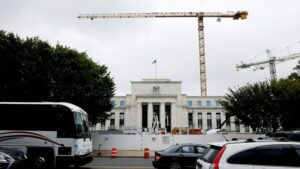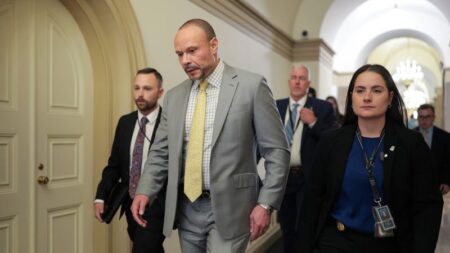The United Kingdom has announced the resumption of processing asylum claims from Syrian nationals, a significant shift after a suspension that lasted over seven months due to the political turmoil following the fall of President Bashar al-Assad’s regime. This decision was confirmed by Dame Angela Eagle, the UK’s Asylum Minister, who stated that the Home Office has taken the necessary steps to ensure that accurate and reliable assessments can now be made regarding these claims. The government has released updated guidelines that will assist officials in making informed decisions on the asylum applications of Syrians.
Prior to this decision, the UK had paused all decisions related to Syrian asylum claims in December 2025, instigated by a rebel offensive led by the Islamist group Hayat Tahrir al-Sham (HTS), which resulted in the overthrow of Assad. Dame Angela Eagle emphasized that the pause was crucial during a period that lacked stable and objective information, which is paramount for assessing risks associated with returning individuals to Syria. Nevertheless, this hiatus left over 7,000 Syrian asylum seekers in a precarious situation, many of whom had been living in hotels or other forms of temporary accommodations while awaiting a resolution to their claims.
The suspension also impacted Syrians who had already received refugee status, originally granted five years of residence in the UK before they would be eligible to apply for permanent settlement. Human rights advocates highlight that remaining in a state of temporary status complicates the ability of these individuals to secure employment or housing, leaving many in a state of uncertainty concerning their future.
The Refugee Council, represented by its Chief Executive Enver Solomon, welcomed the resumption of processing claims, stating that the previous pause had resulted in many Syrians feeling trapped, unable to work or move on with their lives. Solomon urged the government to carefully assess each asylum application based on the individual circumstances of the applicants, acknowledging the persistent instability in Syria and the potential dangers faced by returning individuals.
Alongside the announcement regarding asylum claims, significant developments in the political landscape of Syria were also noted. Following the overthrow of Assad, the region is now effectively under the control of HTS, designated as a terrorist organization by the UK. Recent reports indicate that Ahmad al-Sharaa, the HTS leader, was dubbed Syria’s interim president. Such changes compel the UK government to reassess how returned individuals from the UK would fare under the current regime.
According to the updated guidance from the Home Office, asylum seekers must establish a “well-founded fear of persecution” to be granted asylum or refugee status as per the United Nations Refugee Convention. It is specified that uncertainties in law and order alone do not constitute valid grounds for such fears. The guidance, however, states that while the presence of indiscriminate violence can be alarming, it does not automatically imply an individual threat upon civilians. Each case must be deliberated on its particular facts, with the burden of proof resting upon applicants.
The new guidance also provides distinctions concerning the risks faced by various ethnic and religious groups in Syria. Research indicates that ethnic minorities, like Kurds or Alawites, might confront significantly different risks based on regional controls and the perceived political opinions of the individuals. This underscores the complexity of navigating asylum claims amid ongoing political instability.
Most recently, Foreign Secretary David Lammy’s visit to Syria marked a historic moment, as he became the first UK minister to set foot in the country following the civil uprising that triggered the ongoing conflict. The UK government is also incrementally lifting sanctions against Syria, reflecting a cautious approach to reengagement. With these developments, the Home Office aims to forge a pathway forward for Syrian asylum seekers while facing the graceful challenge posed by the current landscape of the Syrian government.











